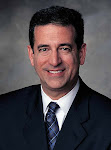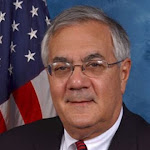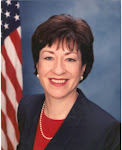Despite hard work to the opposite end, the ruling party lost two key governorships last night in what many conservative and some liberal pundits are calling a warning to the White House and the ruling party for 2010.
However, the now conventional wisdom about the election tends to be completely missing the mark and, thankfully some pundits are realizing this as much as many democrats who turned out in 2008 but didn't this week.
Mid-term elections tend to have much lower voter turnout and off-year elections tend to be much worse. The reality for any election is that turnout will drive the winners, and records like the one Virginia has where their governor's mansion has for 3 consecutive decades gone to the opposite party that's in the White House tends to prove this reality.
The ruling party is always at their peak during a presidential campaign and the idea that the same party would be just as energized about gubernatorial elections less than 12 months after the last year's election is pretty hard to fathom. This is almost never the case and very few presidents have been capable of maintaining sky high approval ratings through their first couple of years.
Considering that the President's political capital is largely spent in the first year or two and the historical erosion of the ruling party's hold on congressional seats in mid-term elections after a White House win, what's being read into this week's election is whether or not people are satisfied with Obama, not whether the citizens of New Jersey are satisfied with Governor Corzine who was actually on their ballot. Presidential approval ratings in NJ holding strong at 57% should end any question about this, despite the expectation that congressional republicans and pundits will not let this go.
The real lessons that dems should take from this election are as follows.
The more time is wasted and the more delays there are before a health care bill passes the more there's a chance that dems will have a flat to humbling defeat in 2010. It's been said before, but there's almost no uncertainty in the thought that if democrats manage to pass a health care bill before the spring and next year's elections, then dems will retain a large part of the congressional seats that are in play and might even come out with an additional House seat or two.
The biggest realization is that democratic GOTV (Get out the vote) campaigns in 2009 were completely ineffective and that 2010 GOTV campaigns could be headed for similar failure if the youth base isn't riled up enough to show up. In this week's campaigns, the youth vote was almost halved in New Jersey and Virginia from last year.
While a 10% difference probably doesn't seem like much, considering the margins between Corzine and Christie was four percentage points, it would seem of utmost importance for all democratic candidates to get the youth to turn out for them.
There's no quick answer as to how to get the youth to show up in strength on off-year elections, but their support for democrats in recent years is steadfast and them showing up to the polls can be key to maintaining democratic majorities for a long time to come.
Bill Owens of New York is the first democratic candidate to win the New York-23 seat in over 140 years.
NY-23 offers lessons for both parties, both good and bad ones. What republicans need to take away from this is that while the race was close, they did lose an almost 'safe' republican seat following the biggest defection since Senator Arlen Specter (PA) switched parties to become a dem in a similar 'purity purge' by conservatives. Republicans are unlikely to stop this type of thing if the purging continues to be done by voters and less likely to stop if national republican candidates for 2012 keep undermining RNC candidates by endorsing Conservative Party and other independent candidates.
There's a very real possibility of a republican party split, and it's not likely to become apparent to the republican and even democratic leadership until next year's elections. More commonly occurring third party spoilers could be key next year in deciding the balance of power.
The most worrying thing for republicans about this is that the split in their party may very well be de facto, as independent candidates flock to appear on the ballot and garner more of the conservative vote as the 20% of Americans willing to call themselves republicans figure continues to fall.
The split may not seem real or even actually occur until election day a year from now when vote tallies come in. A scenario where the party implicitly splits and creates a legitimate third party is unlikely, but dissatisfaction with the republican party could very likely result in the support of non-mainstream candidates; an irrefutable win for democrats. If there are significant third party spoilers in 2010, then there is a very high likelihood that democrats will come out flat or on top in 2010 and beat the historical odds of losing a few seats.
There are undoubtedly a lot of signals that 2009 sent both parties, but in my opinion what is now becoming conventional wisdom is completely getting it wrong. 2010 will be a big opportunity for both parties, but what either party manages to get together or have fall apart by next year's elections will be difficult to predict and precisely what decides who will eventually end up on top. 2009 wasn't a referendum on anyone, it was a pre-season game to what will be a contentious political season next year.
Subscribe to:
Post Comments (Atom)






























































No comments:
Post a Comment